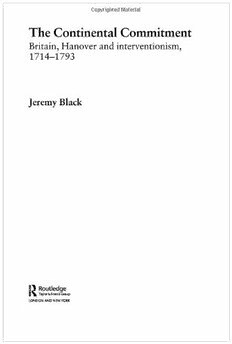
The Continental Commitment Britain, Hanover and Interventionism 1714-1793 PDF
229 Pages·2005·1.022 MB·English
Most books are stored in the elastic cloud where traffic is expensive. For this reason, we have a limit on daily download.
Preview The Continental Commitment Britain, Hanover and Interventionism 1714-1793
Description:
Recent debates about British political and military strategies, derived in particular from dissension about Britain’s relationship with Europe and from disagreement over the Iraq war, has led to a greater awareness of the problematic nature of the concept of ‘national interests’. This major new work delivers a long view of this issue, its twin strands are captured by an assessment both of the Continental commitment and British interventionism in the 18th Century. The extent to which Britain’s rise to superpower status in America and Asia was related to the Continental connection, and her Hanoverian interests, is a central theme of this study, as is the relationship between the domestic position of the Crown and its interests as Electors of Hanover. The issue of Continental interventionism opens up the question of how alliances generate their own pressures, at the same time that they are supposed to help overcome challenges; while also indicating how the domestic support for alliances shifts, creating its own dynamics that in turn affect the international dimension. This book will be of great interest to students and scholars of international relations, British foreign policy, British history and war and conflict studies.
See more
The list of books you might like
Most books are stored in the elastic cloud where traffic is expensive. For this reason, we have a limit on daily download.
